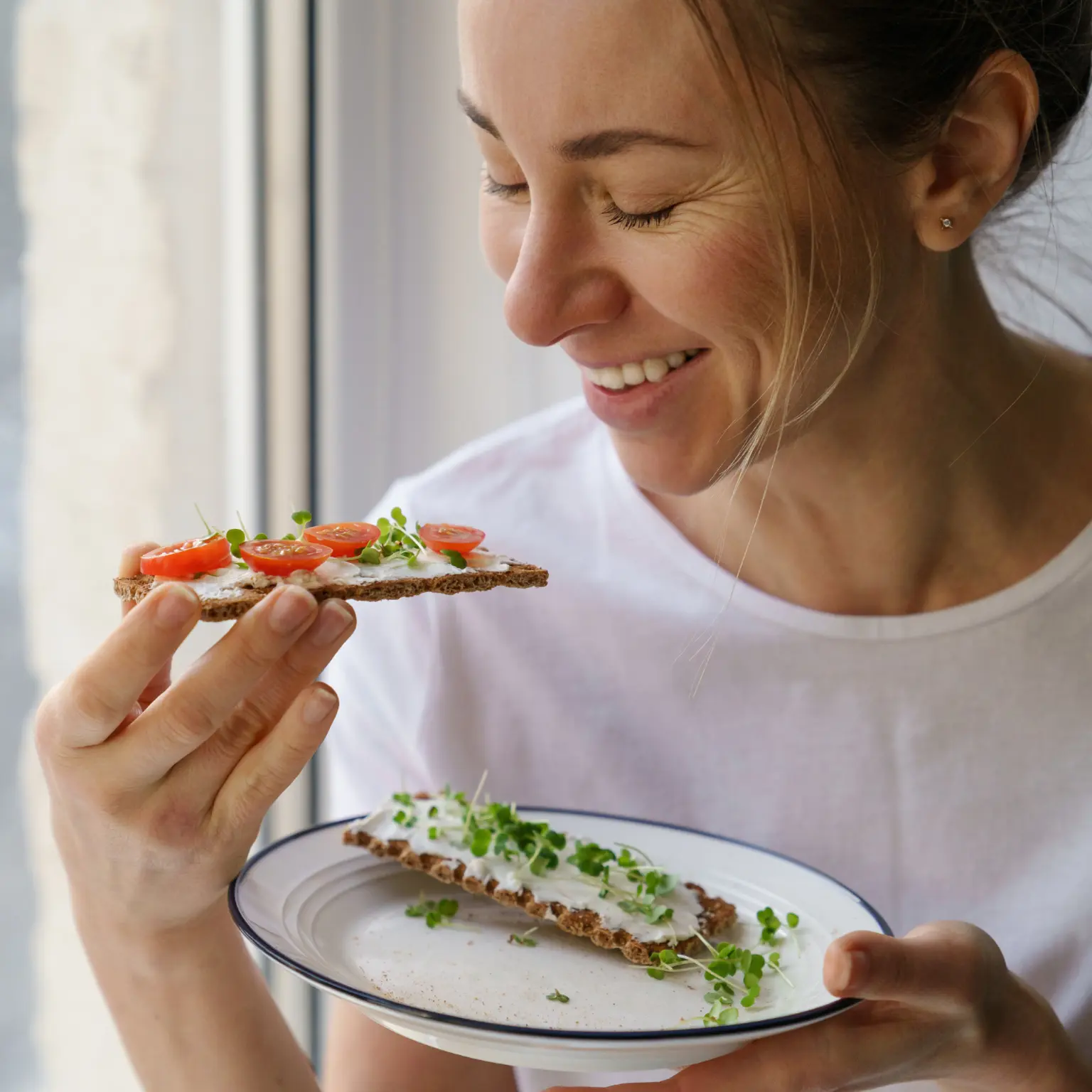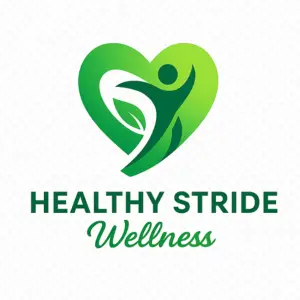The Ultimate 21-Day Healthy Eating Challenge to Kickstart Your Wellness Journey

Welcome to Healthy Stride Wellness! We’re excited to bring you this comprehensive guide that will lead you through a transformative 21-day healthy eating challenge.
This challenge is designed to kickstart your wellness journey, helping you establish lasting habits that will support a healthier lifestyle. Whether you’re new to healthy living or looking to refine your habits, this guide provides valuable tips, a detailed meal plan, and practical advice to ensure your success.
Table of Contents
Key Takeaways
- A 21-day healthy eating challenge can significantly improve your overall well-being by establishing sustainable healthy habits.
- Starting with simple, manageable steps is crucial for long-term success in both diet and wellness.
- This challenge will not only kickstart your wellness journey but also equip you with the tools to maintain a healthy lifestyle long after the 21 days are over.
The 21-Day Healthy Eating Challenge
Importance of a Healthy Eating Challenge
Embarking on a healthy eating challenge can be a game-changer for your health and well-being. A structured plan, such as the 21-day healthy eating challenge, is specifically designed to help you transition to healthier food choices. Over three weeks, this challenge encourages the formation of new, healthy habits that will stick with you long after the challenge ends.
The reason why 21 days is a common time frame for challenges is that it’s considered the minimum amount of time needed to form new habits. During this period, you’ll make a conscious effort to replace unhealthy foods with nutritious, whole foods, helping you reset your eating patterns and improve your overall health.
What is the 21-Day Diet Challenge?
The 21-day diet challenge is a structured eating plan aimed at kickstarting your wellness journey. This challenge involves following a carefully designed meal plan that focuses on whole, nutrient-dense foods while cutting out processed foods, added sugars, and unhealthy fats. The objective is to reset your eating habits, boost your metabolism, and improve your overall health.
This challenge isn’t just about losing weight—it’s about making sustainable changes to your diet that will benefit your body in the long run. Throughout these 21 days, you’ll be encouraged to embrace clean eating, which means consuming foods in their most natural state, without additives or artificial ingredients.
Benefits of a 21-Day Clean Eating Plan
Participating in a 21-day clean eating plan offers numerous benefits that extend beyond just improving your diet:
- Increased Energy Levels: By eliminating processed foods and focusing on nutrient-dense options, you’ll likely experience a noticeable boost in your energy levels.
- Weight Loss: Many participants find that they lose weight naturally during the challenge, as the meal plan is designed to reduce calorie intake and enhance metabolism.
- Better Digestion: Whole foods are rich in fiber, which aids in digestion and helps maintain a healthy gut, reducing bloating and improving regularity.
- Improved Mental Clarity: Clean eating can also enhance mental focus and clarity, as your body receives the essential nutrients it needs to function optimally.
Getting Started with Your 21-Day Meal Plan
How Do I Start a Healthy Eating Challenge?
Starting a healthy eating challenge may seem overwhelming at first, but breaking it down into manageable steps can make the process much easier. Here’s how to get started:
- Set Clear Goals: Determine what you want to achieve with this challenge—whether it’s weight loss, increased energy, or simply developing healthier eating habits.
- Prepare Your Environment: Begin by cleaning out your pantry and fridge. Remove processed foods, sugary snacks, and any other temptations that could derail your efforts.
- Stock Up on Healthy Foods: Purchase a variety of whole foods such as fruits, vegetables, lean proteins, whole grains, and healthy fats. Having these on hand will make it easier to stick to the plan.
- Plan Your Meals: Planning your meals is essential for keeping yourself in line. Consider prepping meals in advance, so you’re less likely to reach for unhealthy options when you’re busy.
Tips for a Healthy Lifestyle Change
To ensure long-term success, focus on developing sustainable habits rather than aiming for perfection. Here are a few suggestions to assist you in creating changes that will stick:
- Meal Prep: Set aside some time every week to get your meals ready in advance. This reduces the temptation to opt for quick, unhealthy choices when time is tight.
- Stay Hydrated: Drinking plenty of water is crucial for maintaining energy levels, supporting digestion, and keeping your body functioning optimally.
- Listen to Your Body: Notice the impact that various foods have on your body and mood. Adjust your diet based on what works best for you, ensuring you’re eating foods that nourish and energize you.
Simple Healthy Eating Habits
Incorporating simple, healthy eating habits into your daily routine is key to maintaining the progress you’ll make during the challenge. Here are a few habits to adopt:
- Start Your Day with a Nutritious Breakfast: Opt for high-protein options like eggs or Greek yogurt with fresh fruit to kickstart your metabolism and keep you full throughout the morning.
- Include Vegetables in Every Meal: Aim to fill half your plate with vegetables. This ensures you’re getting a wide variety of vitamins, minerals, and fiber.
- Limit Added Sugars: Processed sugars can spike your blood sugar and lead to energy crashes. Instead, choose natural sweeteners like honey or fruits when you crave something sweet.
Kickstart Your Wellness Journey
Wellness Challenge for Beginners
If you’re new to wellness challenges, it’s essential to start slow and gradually build up your healthy habits. Here’s how beginners can ease into the 21-day challenge:
- Set Realistic Expectations: Don’t expect overnight results. Shift your focus to the steps you take rather than the end result, and make sure to acknowledge and enjoy the little wins you achieve as you progress.
- Begin with Small Changes: Start by making minor adjustments to your diet, such as incorporating more fruits and vegetables or reducing your intake of sugary drinks.
- Stay Accountable: Consider joining a community or finding a challenge buddy to keep you motivated and accountable throughout the 21 days.
How Can I Kickstart My Wellness Journey?
To effectively kickstart your wellness journey, adopt a holistic approach that includes not just healthy eating, but also regular physical activity, mental well-being, and sufficient rest. This multifaceted strategy ensures that you’re addressing all aspects of your health, setting a strong foundation for long-term wellness.
Here are some ways to begin:
- Incorporate Exercise: Pair your healthy eating challenge with a commitment to move more each day. Whether it’s a daily walk, a yoga session, or strength training, physical activity is crucial to your overall wellness.
- Practice Mindfulness: Consider incorporating mindfulness practices such as meditation or deep breathing exercises into your daily routine. These tips can lower stress levels and enhance mental focus.
- Prioritize Sleep: Getting enough sleep is crucial for your body to recover and stay healthy. Aim for 7-8 hours of quality sleep each night to support your wellness goals.
What Should I Eat on a 21-Day Challenge?
To help you get started, here’s an example of what you might eat on a typical day during the 21-day healthy eating challenge:
| Meal | Healthy Choices |
| Breakfast | Oatmeal topped with fresh berries, a sprinkle of nuts, and a drizzle of honey |
| Lunch | Grilled chicken salad with mixed greens, colorful vegetables, and a light vinaigrette |
| Snack | A simple snack option is having a few almonds and a piece of fruit. |
| Dinner | Baked salmon with quinoa and steamed broccoli |
| Dessert | Greek yogurt with a few slices of banana and a sprinkle of chia seeds |
This meal plan is designed to provide balanced nutrition, with a focus on whole foods that are rich in essential nutrients.
The 21-Day Diet Plan Breakdown
To make the 21-day diet challenge more manageable, it’s helpful to break it down into weekly goals and meal plans. Let me give you an idea for meals during your first week:
21-Day Meal Plan Overview
| Day | Breakfast | Lunch | Dinner | Snacks |
|---|---|---|---|---|
| Day 1 | Smoothie with spinach, banana, and almond milk | Turkey wrap with whole wheat tortilla | Grilled chicken with roasted veggies | Greek yogurt with a drizzle of honey |
| Day 2 | Scrambled eggs with spinach | Quinoa salad with mixed greens | Baked cod with sweet potatoes | Apple slices with almond butter |
| Day 3 | Chia pudding with berries | Lentil soup with a side of salad | Stir-fried tofu with brown rice | Carrot sticks with hummus |
| Day 4 | Avocado toast with a poached egg | Chicken Caesar salad | Whole wheat pasta with marinara and lean ground beef | Cottage cheese with pineapple |
| Day 5 | Greek yogurt with granola | Grilled veggie wrap | Shrimp stir-fry with mixed vegetables | Handful of mixed nuts |
| Day 6 | Whole grain pancakes with fruit | Tuna salad with mixed greens | Turkey meatballs with zucchini noodles | Fresh berries with dark chocolate |
| Day 7 | Omelet with peppers and onions | Black bean soup with a side of avocado | Grilled salmon with wild rice | Sliced cucumbers with tzatziki |
This plan provides a variety of meals to keep things interesting and to ensure you’re getting a range of nutrients. Feel free to mix and match these meals according to your preferences.
Easy Healthy Meal Ideas
Sticking to your meal plan doesn’t have to be complicated. Here are a few easy and nutritious meal ideas to keep you on track:
- Mason Jar Salads: Layer your favorite salad ingredients in a mason jar for a convenient, grab-and-go lunch option.
- Smoothie Packs: Pre-pack your smoothie ingredients in freezer bags for quick and easy blending in the morning.
- Overnight Oats: Combine oats, milk, and your favorite toppings the night before for a hassle-free breakfast that’s ready when you are.
Best Tips for Wellness and Healthy Living
To maintain your progress beyond the challenge, continue incorporating these wellness tips into your routine:
- Mindful Eating: Slow down and savor your meals. Listen to your body’s signals for hunger and fullness to prevent eating too much.
- Regular Exercise: Try to get in about 30 minutes of exercise most days. This could be anything from a brisk walk to a full workout session.
- Positive Mindset: Focus on the positive changes you’re making and be gentle with yourself during setbacks. Consistency is more important than perfection.
Maintaining Momentum Post-Challenge
How to Maintain a Healthy Diet After the Challenge?
After completing the 21-day challenge, it’s important to keep up the healthy habits you’ve developed. Here’s how to maintain your momentum:
- Continue Meal Planning: Keep up with weekly meal planning and prep to stay on track with your healthy eating habits.
- Experiment with New Recipes: Don’t be afraid to try new foods and recipes. This keeps your diet interesting and prevents boredom.
- Stay Accountable: Continue to check in with a friend, join a community, or track your progress to stay motivated.
Long-Term Benefits of Healthy Eating for Beginners
Sticking to a healthy eating plan offers numerous long-term benefits, especially for beginners. These include:
- Sustained Energy Levels: A diet rich in whole foods provides consistent energy throughout the day, reducing the likelihood of energy crashes.
- Improved Mood: Nutrient-dense foods can positively impact your mood and mental health, helping you feel more balanced and focused.
- Reduced Risk of Chronic Diseases: A healthy diet lowers the risk of chronic conditions such as heart disease, diabetes, and obesity, leading to a longer, healthier life.
Continuing Your Wellness Journey
Your wellness journey doesn’t end after 21 days. Continue setting goals, exploring new healthy recipes, and staying active. Engaging with communities like Healthy Stride Wellness can provide ongoing support, inspiration, and motivation to keep you on track.
In Conclusion
Thank you for reading this guide from Healthy Stride Wellness! We hope this 21-day healthy eating challenge inspires you to take the first step towards a healthier, more vibrant life. Remember, the journey to wellness is ongoing, and we’re here to support you every step of the way.
Follow Healthy Stride Wellness for more healthy living tips, healthy eating advice, and motivation to keep your wellness journey on track.
Please consult a healthcare professional before starting this challenge, especially if you have any underlying health conditions.
FAQs
1. How do I start a healthy eating challenge?
To start a healthy eating challenge, set clear goals, prepare by stocking up on whole foods, and eliminate unhealthy options from your home. Follow a structured meal plan and stay consistent.
2. What should I eat on a 21-day challenge?
Focus on whole, nutrient-dense foods like lean proteins, vegetables, fruits, whole grains, and healthy fats. Stay away from processed foods, added sugars, and unhealthy fats.
3. How can I maintain my healthy diet after the challenge?
Continue practicing the healthy habits you developed during the challenge, such as meal prepping, staying hydrated, and listening to your body’s needs. Keep trying new healthy recipes and stay active.
Please Note: Healthy Stride Wellness provides educational content and is not a replacement for medical advice. Consult a healthcare provider for any health issues.




